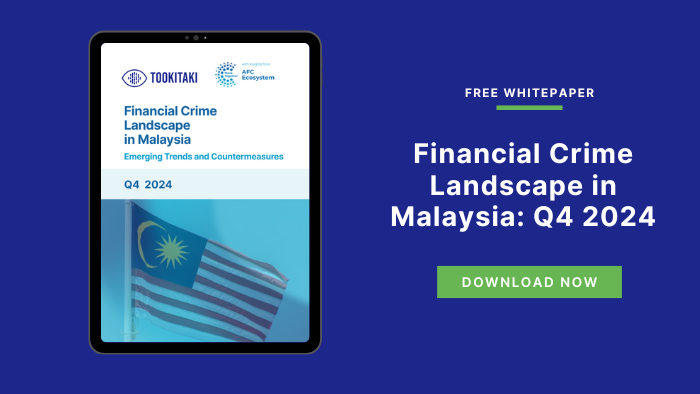Online investment scams are reaching alarming levels in Malaysia, with reported losses nearing RM574 million in the first quarter of 2025 alone.
Powered by social media platforms and increasingly sophisticated AI tools, these scams are deceiving thousands of Malaysians and placing immense pressure on financial institutions and regulators to adapt. As the country strengthens its AML/CFT capabilities, understanding the drivers and implications of this surge is more important than ever.
Background of the Scams
The current wave of scams primarily revolves around fraudulent investment schemes circulating on Telegram, WhatsApp, Facebook, and other digital platforms. These scams promise guaranteed high returns, present fake trading dashboards, and often include chat groups populated with fake participants who claim to be making profits.
What makes these scams more dangerous today is their integration with AI-generated content, including deepfakes, fake identities, and automated responses that mimic financial advisors. Victims are often persuaded to make direct fund transfers under the guise of legitimate investment opportunities. Once the money is moved—often through mule accounts and layered transfers—it becomes almost impossible to trace or recover.
This surge isn't an isolated phenomenon; it’s part of a larger trend of increasingly digital-first fraud targeting vulnerable and aspiring investors across the region.
Impact on Malaysia and Global Finance
Beyond the financial losses, these scams are having a deep reputational impact on Malaysia’s financial system. Public trust in digital finance is wavering, particularly as fraudsters continue to outpace the detection capabilities of traditional systems.
At the international level, there are concerns around AML effectiveness. Malaysia has previously faced scrutiny in FATF evaluations, and continued exposure to such large-scale scams could impact its standing in future reviews. The cross-border nature of many of these scams also presents a challenge, as funds move quickly between countries and through complex laundering networks, implicating Malaysia in global financial crime networks.
Lessons Learned
The recent rise in investment scams has brought several shortcomings to light:
-
Victim-led transactions are often missed by conventional rule-based monitoring, especially when the victim willingly initiates the transfer.
-
Fraud typologies are evolving faster than detection systems, requiring more agile, community-driven intelligence.
-
Lack of coordination between banks, telcos, fintechs, and regulators has hampered timely prevention.
-
Public education is lagging behind the pace of online scam proliferation, leaving users more susceptible.
These gaps highlight the need for both technological upgrades and institutional collaboration.
The Role of AML Technology in Preventing Future Scandals
To tackle the sophistication of modern scams, financial institutions must move beyond static rule engines. This is where AI-powered AML and Fraud Detection platforms like Tookitaki’s FinCense are making a difference.
FinCense is an end-to-end AML and fraud prevention platform built on the principles of collaborative intelligence and federated learning. Through its integration with the AFC Ecosystem, FinCense leverages continuously updated, expert-contributed scenarios that reflect real-world scam patterns—including those targeting the Malaysian market.
Key capabilities include:
-
Real-time, scenario-based detection that identifies scam behaviours before damage occurs.
-
Auto-tuning of risk thresholds via simulation mode and feedback loops to reduce false positives.
-
Explainable AI that improves auditability and supports faster regulatory alignment.
-
Red flag libraries derived from real-world cases, enabling contextualised detection of local threats like investment scams and mule accounts.
By adopting solutions like FinCense, banks and fintechs in Malaysia can strengthen early detection, streamline investigations, and significantly reduce compliance overheads—without sacrificing effectiveness.
Moving Forward: Learning from the Past, Preparing for the Future
Malaysia is at a crucial point in its fight against financial crime. Investment scams are not just a passing threat—they are part of an evolving ecosystem of digital deception. To stay ahead, financial institutions must shift toward adaptive, intelligence-led compliance frameworks that evolve in real time.
At the same time, regulators, banks, and industry bodies must prioritise cross-sector collaboration, public awareness, and the adoption of advanced AML technologies.
With community-driven platforms like the AFC Ecosystem and AI-enabled tools like FinCense, Malaysia has the opportunity to not only safeguard its financial system but also lead the region in the fight against next-gen financial crime.
Anti-Financial Crime Compliance with Tookitaki?







